 2011 has been hailed as the “year of geolocation.” Alas, so was 2010. As was 2009 and 2008. Yet geolocation services like Foursquare and Gowalla continue to seek mainstream audiences with limited success.
2011 has been hailed as the “year of geolocation.” Alas, so was 2010. As was 2009 and 2008. Yet geolocation services like Foursquare and Gowalla continue to seek mainstream audiences with limited success.
Most smartphone users have never used a geolocation app. What's holding them back? And how should marketers approach these emerging technologies?
The Value of Geolocation
It's easy to see why marketers would be interested in geolocation: You can effectively target customers at the most important point in the consideration cycle – standing right in front of you. Digital marketing has historically been tasked with either an awareness/brand-building role, or – more frequently – a direct response role, driving customers right into the ecommerce funnel.
But we know that social media breaks down that wall between brand-building and purchase behavior. We've seen marketers effectively drive sales through social media engagement – Starbucks is one brand that's done a great job on that front.
For consumers though, the benefits of geolocation are not clear. A study on consumer geolocation adoption shows when people have smartphones (and know about geolocation services), more than 30% say that privacy concerns prevent them from sharing their location on digital devices. So, how do we effectively use location for marketing purposes?
Build Geolocation Into Your Social Strategy
Sharing location is a high-trust activity. To overcome consumer concerns about privacy, marketers can use the brand's authority. In fact, brand trust is the only way geolocation technologies will move into the mainstream.
Nike’s running community, Nike+, is a great example of this. Nike uses geolocation to share successful runs easily across Facebook and Twitter. Runners share their achievements with their friends and build new relationships as part of the Nike+ community. In both cases, the benefit of tracking your athletic performance and achievements provide a clear reason to share personal information with Nike.
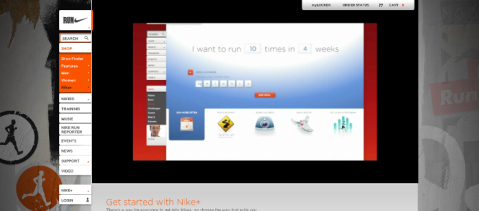
Yelp also builds geolocation successfully on top of a social media strategy. By allowing reviewers to check in to restaurants, users can later be reminded to review the restaurant and build their reputation as an authoritative foodie. That reputation is worth giving up some privacy for.
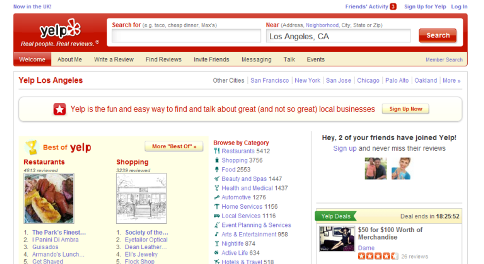
Don't worry about getting your casual customers to check in. Instead, incentivize your most loyal brand advocates – your existing social media followers. Your customers will let you know how much they trust your brand based on their check-in behavior. And you can tell how vocal and influential a customer is when she raises her hand with a check-in. Reward and reinforce that behavior.
How to build geolocation into your social strategy:
- Tell your social networks that checking in is important to you. Make sure you remind your fans and followers to check in, especially for important or large events.
- Encourage cross-promotion from location services to social networks. Offer rewards for Foursquare check-ins – but only if the person is also a Facebook fan. Deliver rewards through Facebook to assure compliance.
- Use geographic information from social networks to drive location-based participation. Social networks like Facebook have city/state data on users – so use that for targeted messaging to drive in-store experiences.
Go Beyond Coupons to Real Rewards for Checking In
The good news is that there are ways to get customers to use geolocation services. The bad news is that the low-hanging fruit is not motivating customers right now.

Discover Proven Marketing Strategies and Tips
Want to go even deeper with your marketing? Check out the Social Media Marketing Podcast! Publishing weekly since 2012, the Social Media Marketing Podcast helps you navigate the constantly changing marketing jungle, with expert interviews from marketing pros.
But don’t let the name fool you. This show is about a lot more than just social media marketing. With over 600 episodes and millions of downloads each year, this show has been a trusted source for marketers for well over a decade.
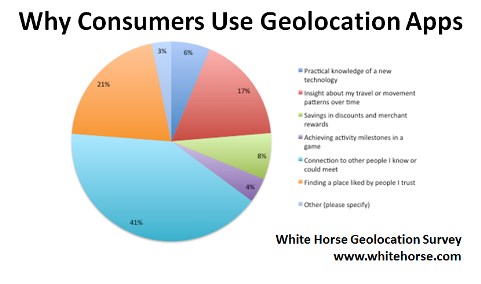
Why consumers use geolocation apps:
- Coupons: The most common geolocation marketing approach is a discount for checking in. McDonald's tested this out last fall, and increased check-ins by 33% in one day. But this is exactly the wrong strategy. Because these are already loyal fans, you don't need to discount and give away margin. In fact, only 7% of users in the White Horse survey said they use geolocation for coupons.
- Badges and passport stamps: These are also not a motivating factor – though they can be a nice surprise. 4% indicated that this was a motivation for checking in. Games are fun when they're well-designed (just look at the staying power of chess and Monopoly, even with advanced videogame consoles) – but when games are badly designed, they're pretty boring. And right now, achievement badges in geolocation services are just not that interesting or meaningful.
- Social Engagement: By far, the most important motivation for consumers is the social component of location. 41% said the reason they checked in was to “connect with people I know or could meet” and another 21% said they were trying to “find a place liked by people they trust.”
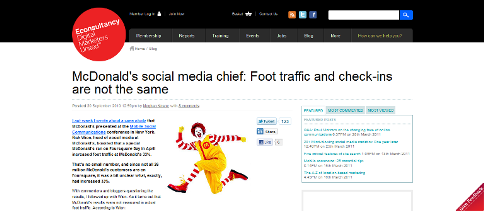
Marketers must create rewards and reinforcements that yield richer social connections with their customers. By putting customers in touch with each other, the brand creates a meaningful and engaged community around a shared idea. That's a win for everyone.
Get World-Class Marketing Training — All Year Long!
Are you facing doubt, uncertainty, or overwhelm? The Social Media Marketing Society can help.
Each month, you’ll receive training from trusted marketing experts, covering everything from AI to organic social marketing. When you join, you’ll also get immediate access to:
- A library of 100+ marketing trainings
- A community of like-minded marketers
- Monthly online community meetups
- Relevant news and trends updates
Taplister does a great job of this by connecting beer aficionados with geolocation information about where their favorite pours are on tap. Taplister successfully builds on the beer lover’s desire to taste, compare and discuss beers with others interested in the topic. Alcohol has helped form new friendships for thousands of years – this just streamlines an activity that's already important to many people.
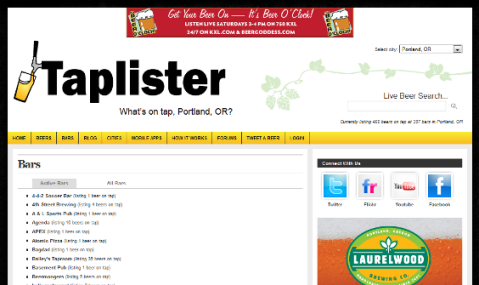
Coke Zero's TRON LiveCycle app also uses technology to build new social connections. This real-world game allows users to compete against other players in a live-action version of a TRON competition. The gaming elements provide a compelling experience to challenge existing friends or meet new ones.
How to go beyond coupons to encourage check-ins:
- Create a branded app or layer: your brand’s fans have something important in common – you! Help them meet each other by having your own geolocation experience.
- Use badges to drive new behaviors: Giving someone a free coffee after they already bought nine is incentivizing something they would have done anyway. Instead, use achievement badges to push someone to do something they would not have otherwise done – like recommend your business to a friend.
Test Now to Be Ready for the Early Majority
At least 40 million people have checked in using a geolocation service (more than 30 million of those on Facebook Places alone). That's enough to know the location will be an important component of marketing strategies. But it's early enough for you to run a small pilot to determine what works without risking any brand equity. The knowledge you accrue now will be invaluable when checking in via Facebook Places becomes just as common as sharing a photo on Facebook.
In the next 18 months, your customers will be checking in to the places they care about. What are you doing now to be ready? Leave your questions and comments in the box below.
Attention Agency Owners, Brand Marketers, and Consultants

Introducing the Marketing Agency Show–our newest podcast designed to explore the struggles of agency marketers.
Join show host and agency owner, Brooke Sellas, as she interviews agency marketers and digs deep into their biggest challenges. Explore topics like navigating rough economic times, leveraging AI, service diversification, client acquisition, and much more.
Just pull up your favorite podcast app, search for Marketing Agency Show and start listening. Or click the button below for more information.

